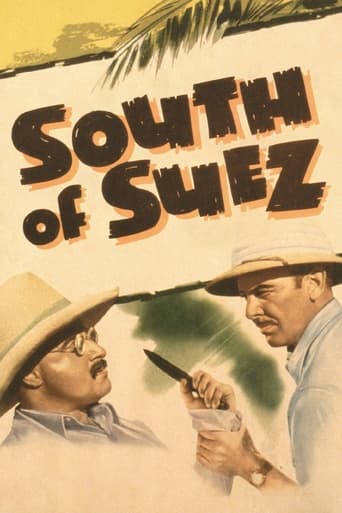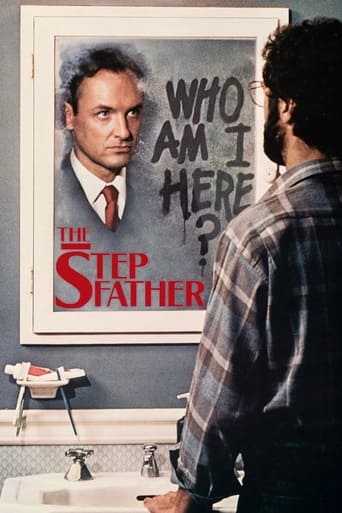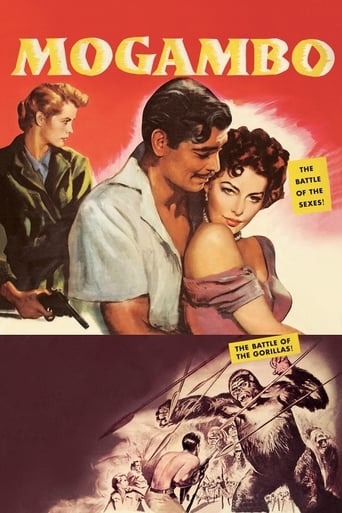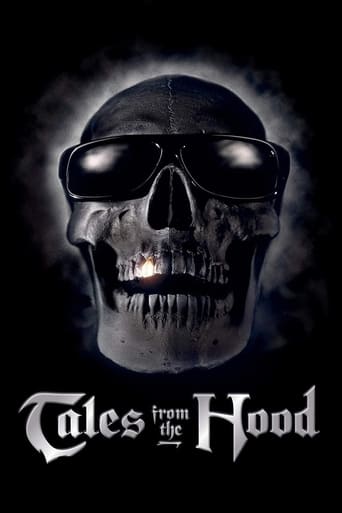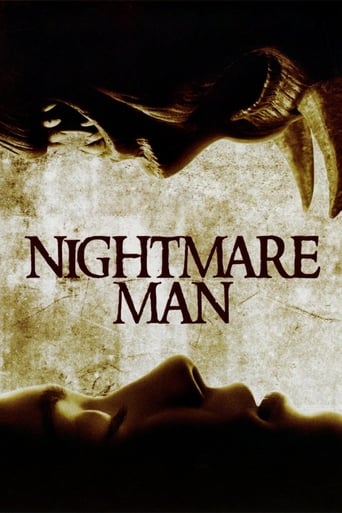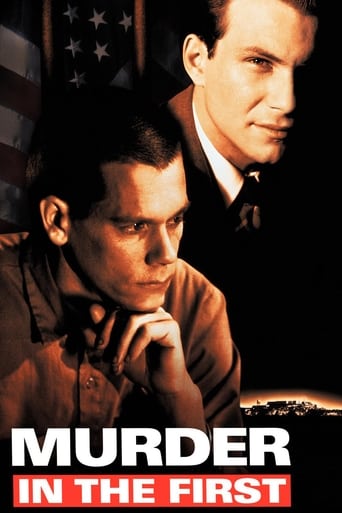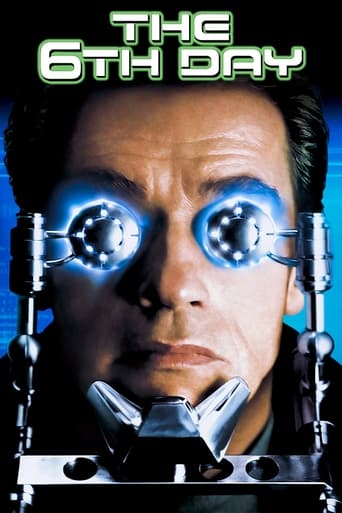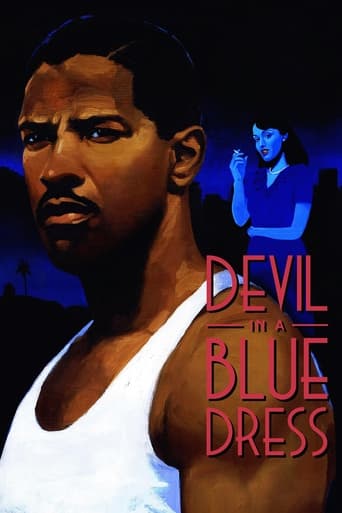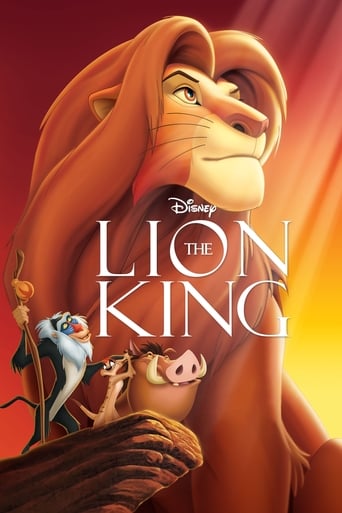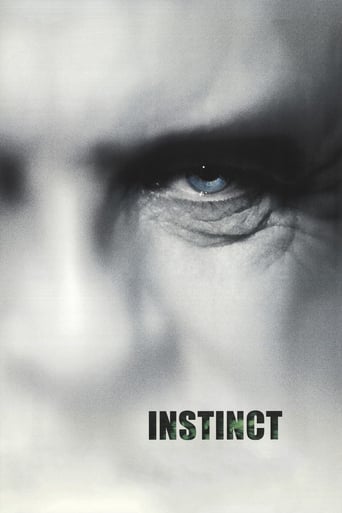
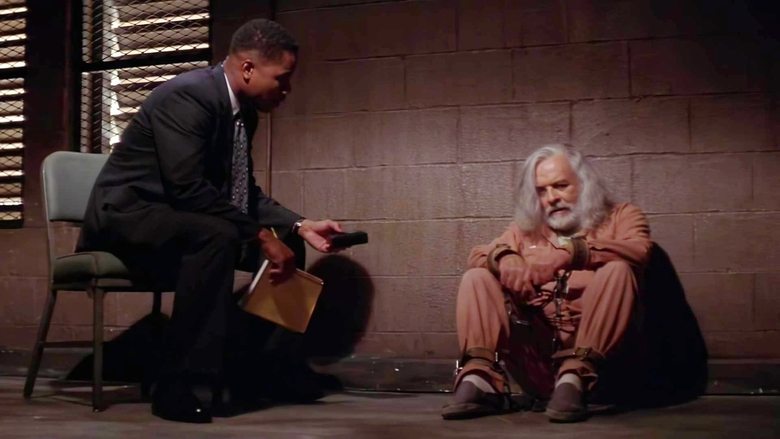
Instinct (1999)
In a prison for the criminally insane, deranged anthropologist Ethan Powell is set to be examined by a bright young psychiatrist, Theo Caulder. Driven by ambition and a hunger for the truth, Caulder will eventually risk everything—even put his very life on the line—in a harrowing attempt to understand the bizarre actions of this madman.
Watch Trailer
Cast


Similar titles
Reviews
I wanted to but couldn't!
Am i the only one who thinks........Average?
It's the kind of movie you'll want to see a second time with someone who hasn't seen it yet, to remember what it was like to watch it for the first time.
A terrific literary drama and character piece that shows how the process of creating art can be seen differently by those doing it and those looking at it from the outside.
INSTINCT is an odd little follow-up to THE SILENCE OF THE LAMBS, featuring Anthony Hopkins in a similarly psychotic turn as an anthropologist whose time living with gorillas in Africa has turned him feral. He now resides in prison, where Cuba Gooding Jr. plays a psychiatrist taking over his case. What follows is a film which mixes psychological thrills and spills with standard prison genre elements, including violent inmates and sadistic guards. Hopkins and Gooding Jr. are both good enough to keep you engaged by this film despite the slightly slow pace and over-familiarity of the plot elements. In the end, it's another interesting treatise on the human condition.
This movie is almost unbearable. It is impossible for me to accept Cuba Gooding Jr's character; his lines are so bad. Like he's just completely fallen in love with the good dr (Hopkins) and his gorillas. That mushy goodbye to Hopkins towards the end, His "knowing" smile at the end as he repeats "You'll never find him", like he shares in anyway what Hopkins has done, raising his interlocked wrists in a display of his willingness to be arrested for the gorilla cause (what?), like he's been given the key to some life changing secret; it's all so very pathetic and impotent. This is a Cuba at his most impressionable and feminine; it's almost kind of funny.That covers sappy, now here's the delusional. The movie says nothing, NOTHING, yet acts like it's so very profound, like uttering the obvious aloud would only cheapen the experience because of it's uniqueness. The secret is, we are not in control; there, now you can go live your lives with renewed purpose, smiling mischievously to fellow passersby who are also in the know. How is this message supposed to help one iota everyone who is forced to live the rat race on a daily basis? Money may not seem very enlightening, but it's what puts food on the table and a roof over our head, and it seems more and more work is becoming necessary just to have the money necessary for humble assurances like these at the end of each day.Oh Lord; I just finished the last 5 minutes, and I'm sorry I did. Cuba standing in the rain, finally free from his illusions, and Hopkins walking off into the jungle, nevermind how he got there, and WHY we have no resolution with his daughter. Like, why stress about the details man? Life's too short, and there are far too many monkeys out there to love. It seems Hopkins and Cuba bonded more than Hopkins ever did with his daughter, but it's OK because she's loving and she'll understand. The end :)
What is the main purpose of a movie? To entertain and amuse in one way or another, right? In other words, captivate your attention for the span of the movie's runtime. Great movies do this and something else – they inspire you and make you think; maybe even enlighten. That's the power of the art of film. My wife and I just watched 1999's "Instinct" and it does this, which explains my high rating.THE PLOT: Anthropologist Ethan Powell (Anthony Hopkins) goes missing in Africa for a couple of years; when he is found living with gorillas he kills a couple of rangers and injures others. After a year in prison in Africa, where he refuses to speak, he is extradited to a Florida prison and put in the mental ward. A young psychiatrist, Theo Caulder (Cuba Gooding Jr.), is assigned his case to see if he can get him to speak and learn what really happened in Africa. Meanwhile Powell's daughter (Maura Tierney) anticipates reconciling with her father, IF Theo can get through to him.There are some peripheral characters, but that's the gist of the story. Some people criticize it as a mix of "Gorillas in the Mist" and "One Flew over the Cuckoo's Nest," which is only valid on a surface level. I've seen the latter film (a great film) and "Instinct" stands on its own; in fact, it's quite unique, which is a sign of greatness. The movie stands or falls on Hopkins and Cuba Jr making the characters and their story come alive and seem real to the viewer. They succeeded for my wife and me. Within 20 minutes we found ourselves absorbed into the story and the characters.Some people, like Roger Ebert, criticized that the film takes on too many topics or messages, but I never got this impression, nor did my wife. There are the main themes—the limitations of freedom in conventional society and the abuse of controllers (or "takers")—and there are a few subthemes, like the flaws of our prisons and mental institutions. The film never confused us or gave the impression that it cut off more than it could chew. If you appreciate films like "Grand Canyon" and "One Flew over the Cuckoo's Nest" you'll probably value "instinct." Some criticized one aspect of the climax, but it happens. There are documented examples in the USA and all over the world. Also, keep in mind that Powell was imprisoned in the mental ward of the prison, not the maximum security area.Is the story contrived to some degree? Of course it is; all movies are. Filmmakers have to tell a story and make their points within a limited time frame -- usually around two hours -- and so there are always contrived elements, coincidences, etc. The trick is to pull it off without seeming too phony or forced, which is sometimes hard to do and it takes good actors. Thankfully, "Instinct" does a respectable job on this front, perhaps mainly because it has a few great actors, although some viewers may roll their eyes at how the "ace of diamonds" subplot is wrapped up. Regardless, it's in the area of ideas that "Instinct" towers above most movies. BOTTOM LINE: "Instinct" is a psychological drama/thriller that entertains but also makes you think and ponder: How free are we really in society? Are you a giver or a taker? A blesser or an abuser? A liberator or a controller? How can you be freer? How can you escape the manipulations and shackles of others, of society, of "government"? How can you walk free of "the game"? And so much more, like the "doctor" learning from the patient and the humility it takes to learn from someone who's "under" you.The film runs 126 minutes and was shot in central Florida, Uganda and Jamaica.GRADE: A
A lot of reviewers have made the pat/rushed judgment that this film is an amalgamation of "Gorillas in the Mist" and "One Flew Over The Cuckoo's Nest." They miss the point. This is not an environmental activist story, and although it does touch on the theme of societal control, its focus is much more on the individual's perception of self within the social construct. That said, it is imperfect and suffers somewhat from a handful of melodramatic scenes (mostly with Gooding front-and center). But the intent of the film--as with the novel from which it is taken--is to instill questions within the viewer regarding the illusions we in our affluent, materialistic Western society hold regarding ourselves and our collective and individual senses of freedom, individualism, and control. As such, certain moments that some viewers proclaim improbable--such as Hopkins' exit scene--are intended to be allegorical more than realistic. This requires the viewer to rise above literalism, which many American viewers often find difficult to do, given American cinema's tendency to shy away from allegory and stick with more profit-producing formulae.





